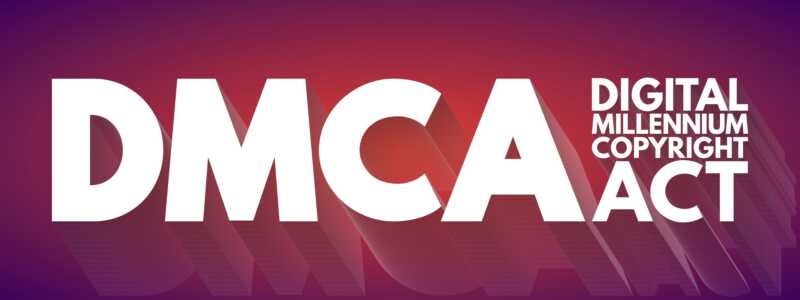What Is DMCA and How Do I Defend My Adult IP?
It’s imperative to safeguard your copyrights and intellectual property in the adult entertainment industry. In the US, there are rules that must be followed by all material manufacturers and distributors. One of the most important laws that studios and website owners that produce their own original content must be aware of is the Digital Millennium Copyright Act (DMCA). The DMCA was adopted and signed into law in 1998. It highlighted intellectual property in the entertainment sector and changed copyright laws in the US.
Adult B2B Marketing discusses adult IP and the DMCA in this blog article.
What Is the DMCA?
The federal Digital Millennium Copyright Act of 1998 officially established the two treaties that the member states of the World Intellectual Property Organization use to reconcile their current federal laws with international standards. Reproducing works that are copyright protected is prohibited by the DMCA. A provision within the recently enacted legislation limits the liability of internet platforms or service providers for copyright infringements by their third-party users. A public policy innovation in copyright law, which releases online web platforms and associated corporations from both direct and indirect liability for third-party infringements, was also enacted by the DMCA.
For What Reason Does the DMCA Impact Adult Entertainment?
To stop content theft, the Digital Millennium Copyright Act is applied. The entertainment industries employ the DMCA as a mitigating technique to protect their exclusive content. Organizations such as the Motion Picture Association and the Recording Industry Association of America strongly support the DMCA and other basic copyright restrictions in order to prevent and lessen illegal downloading and online piracy (theft) of popular music and movies. The entertainment industry regularly uses the DMCA to threaten legal action against pirates.
What Impact Does the DMCA Have on Adult and Pornographic Entertainment?
Since content piracy is one of the biggest issues and hot-button issues with adult tube sites and other illegal platforms, the DMCA covers the adult entertainment industry. The DMCA, to put it simply, is a legal weapon that helps people and studios that have suffered because of content pirates. Pornographers, for example, might upload movies they have stolen from an OnlyFans account to a porn website that does not require user or age verification. The original publisher may submit a DMCA complaint if they find out about the content copying. It is the site owner’s duty to acknowledge receipt of the complaint and take appropriate action to remove the content that the publication that filed the complaint about has reported. In an ideal world, filing a request to protect protected content would go as mentioned above.
Reactions to the DMCA
Many people have expressed disapproval of the Digital Millennium Copyright Act’s implementation and success. The DMCA was purportedly drafted and implemented to reduce online piracy, but according to the Information Technology & Innovation Foundation, it hasn’t had much of an effect on the surge in online piracy in recent years. The Global Innovation Policy Center, an offshoot of the US Chamber of Commerce, asserted that each year, online piracy accounts for well over 26.6 billion views of US-produced films and over 126.7 billion views of TV shows. Further numbers show that photos and short films, including adult content and pornographic images, are unquestionably included in online piracy, as per the same data from the Global Innovation Policy Center.
How Do DMCA Allegations Need to Be Filed?
DMCA reporting is a necessary process, though. The DMCA notification and takedown procedure provides a legal means for copyright holders to finally remove user-uploaded information and material that violates a copyrighted work of art. You need to be very clear and detailed about a few things when sending takedown requests and letters. Service providers, such as adult websites, might otherwise refuse to comply with a removal order without disclosing that content. The service providers retain the right to refuse a takedown request, even if it is filed and meets with the legal requirements of the DMCA. If they reject a legitimate DMCA request, they put themselves in danger of going to court.
Legal representation and understanding with copyright regulations are often required for the process. Nonetheless, studios and creators of adult content have access to a number of companies and experts who can speed up and even automate the DMCA reporting and takedown requests process. We’ve written about the best content pirate mitigation systems for website owners and content producers.
Do I Need to Hire an Attorney for Intellectual Property Rights?
What should you do in the event that content theft or infringement occurs involving your intellectual property? Aside from employing a corporation to deal with piracy, the best course of action would be to retain the services of an attorney specializing in intellectual property and free expression. Actually, we wrote a blog about the best lawyers in the adult sector. All these lawyers are highly regarded within the adult entertainment industry.
Visit the Adult B2B Marketing blog for more information.
We appreciate you reading this blog post, Adult B2B Marketing. Kindly contact us in case you have any inquiries.
